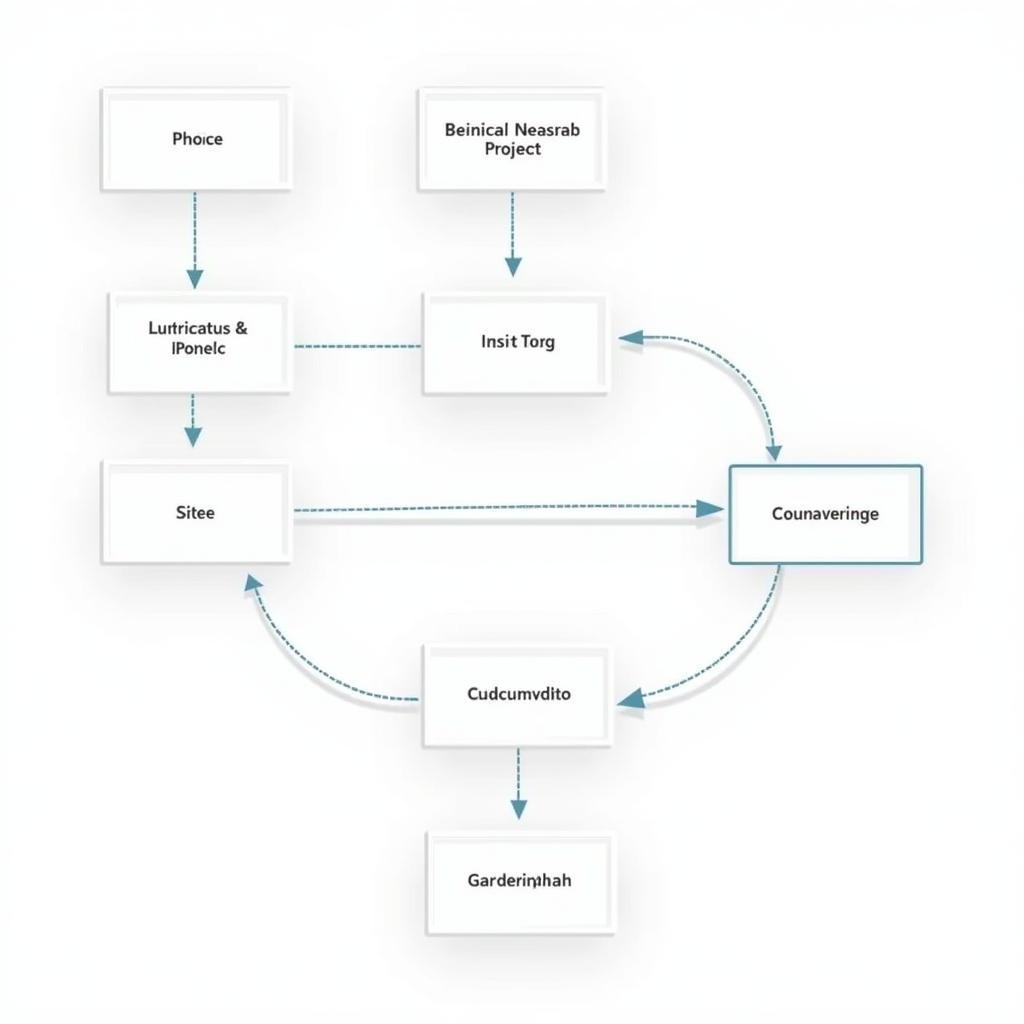Auditability In Qualitative Research is crucial for establishing trustworthiness and rigor. It’s the process of documenting research decisions and procedures in sufficient detail to allow others to understand, verify, and potentially replicate the study. This transparency enhances the credibility of findings and allows for critical scrutiny of the research process.
What is Auditability in Qualitative Research?
Auditability, in the context of qualitative research, refers to the capacity for an independent reviewer to scrutinize the research process and determine the trustworthiness of the findings. This involves a clear and comprehensive documentation of the research journey, from the initial research question to the final conclusions. This documentation should allow an auditor to follow the researcher’s logic, understand the methods employed, and assess the validity of the interpretations. It’s not about replicating the exact results, which is often impossible in qualitative research, but rather about demonstrating the rigor and transparency of the process.
Why is Auditability Important?
The importance of auditability lies in bolstering the credibility and dependability of qualitative research. By providing a clear audit trail, researchers can demonstrate the systematic and thorough nature of their work. This strengthens the study’s trustworthiness, especially in fields where subjective interpretations play a significant role. Furthermore, auditability promotes accountability and facilitates critical engagement with the research findings, fostering greater confidence in the research community.
Key Benefits of Auditability:
- Enhanced Credibility: A clear audit trail increases confidence in the research findings.
- Improved Transparency: Openness about the research process fosters trust and allows for scrutiny.
- Facilitates Critical Review: Detailed documentation allows others to evaluate the research rigor.
- Supports Transferability: While not replicable, a clear process aids in applying findings to other contexts.
- Promotes Accountability: Researchers are held responsible for their methods and interpretations.
How to Ensure Auditability in Your Research
Achieving auditability requires a proactive and organized approach throughout the research process. Here are some practical steps:
-
Develop a Detailed Research Protocol: Clearly outline your research questions, methodology, sampling strategy, data collection methods, and analysis plan.
-
Maintain a Comprehensive Audit Trail: Document every step of the research journey, including decisions made, challenges encountered, and changes implemented. This documentation can include field notes, interview transcripts, coding schemes, memos, and analytical reflections.
-
Use Clear and Consistent Coding Practices: Establish a well-defined coding framework and apply it consistently throughout the data analysis process. Document any modifications or refinements made to the coding scheme.
-
Triangulate Data Sources: Use multiple data sources and methods to enhance the validity and reliability of your findings. Document the rationale behind selecting these sources and methods.
-
Seek Peer Review and Feedback: Share your research process and findings with colleagues or mentors for critical review and feedback. This can help identify potential biases or gaps in your audit trail.
 Documenting Qualitative Research
Documenting Qualitative Research
Common Challenges and Solutions in Ensuring Auditability
While aiming for auditability, researchers often face challenges. One common hurdle is managing the sheer volume of data generated in qualitative research. Solutions include utilizing software for data management and analysis, developing a clear filing system, and regularly reviewing and summarizing data. Another challenge is maintaining objectivity and minimizing bias. Strategies to address this include reflexivity exercises, peer debriefing, and member checking.
“Maintaining meticulous records is paramount for ensuring auditability,” says Dr. Amelia Hawthorne, a renowned qualitative researcher at the Institute for Social Research. “It’s not simply about documenting what you did, but why you did it, allowing others to understand the logic behind your decisions.”
Conclusion
Auditability in qualitative research is essential for ensuring rigor, transparency, and trustworthiness. By meticulously documenting the research process and adopting a systematic approach to data management and analysis, researchers can strengthen the credibility of their findings and contribute to the advancement of knowledge in their respective fields. Remember, a well-documented study is a credible study. Implementing these strategies will ensure your qualitative research meets the highest standards of auditability.
FAQs
-
What is the difference between auditability and replicability in qualitative research? Replicability focuses on reproducing the exact results, which is often not feasible in qualitative research. Auditability focuses on transparency and documentation, allowing others to understand and scrutinize the research process.
-
What are some examples of audit trail materials? Field notes, interview transcripts, coding schemes, memos, analytical reflections, and research protocols are all examples of materials that contribute to a comprehensive audit trail.
-
Why is reflexivity important for auditability? Reflexivity involves reflecting on the researcher’s own biases and perspectives, which can influence the research process. Documenting these reflections enhances transparency and strengthens the audit trail.
-
How can software assist with auditability? Qualitative data analysis software can help manage and organize data, facilitating a clear and systematic audit trail.
-
What is member checking? Member checking involves sharing research findings with participants to verify the accuracy and interpretation of the data. This process enhances the trustworthiness and credibility of the research.
 Auditability throughout the Qualitative Research Process
Auditability throughout the Qualitative Research Process
Other Questions You Might Have
- What are the ethical considerations related to auditability in qualitative research?
- How can auditability be maintained in collaborative research projects?
- What are the limitations of auditability in qualitative research?
More articles on Paranormal Research
- The Mystery of Spontaneous Human Combustion
- Exploring the Evidence for Telekinesis
- Understanding the Phenomenon of Precognitive Dreams
Need assistance with your research? Contact us 24/7:
Phone: 0904826292
Email: research@gmail.com
Address: No. 31, Alley 142/7, P. Phú Viên, Bồ Đề, Long Biên, Hà Nội, Việt Nam.